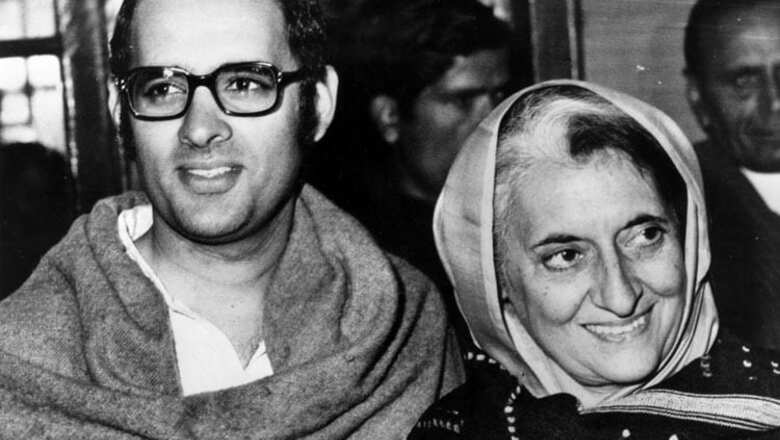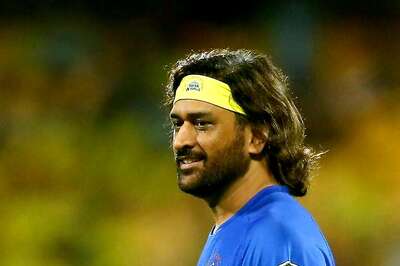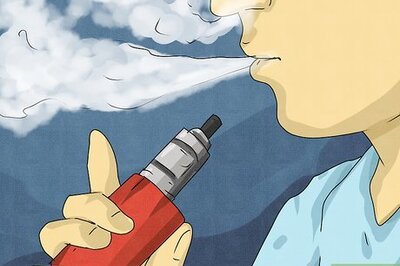
views
A few days back Bharatiya Janata Party (BJP) patriarch Lal Krishna Advani brought back the horrific memories of Emergency days when he stated that "forces that can crush democracy are stronger now". Advani, who represents Gandhinagar Lok Sabha constituency in Parliament, did not specify who was the target of his comments but BJP's rivals claimed that it was aimed at Prime Minister Narendra Modi.
On the other hand BJP leaders pointed out that the 40th anniversary of Emergency was approaching and the target was the Congress and the late prime minister Indira Gandhi who had brought the infamous proclamation which suspended all rights of Indian citizens and led to a brutal crackdown on those opposing the government.
On June 25, 1975 the then prime minister Indira Gandhi imposed Emergency in India citing grave threat to her government and sovereignty of the country from both internal and external forces. Indira Gandhi became the prime minister in January 1966 and then emerged victorious in the 1971 Lok Sabha elections. Even after the split of Congress party she reigned supreme, completely decimating her rivals both within and outside the party.
The victory in the Bangladesh liberation war also gave her a big boost. However, things started going wrong for her from early 1974. There was a failure of monsoon and unemployment rate had touched a high. Poverty was increasing. Industrial production was down and there was a massive labour and students unrest across India.
The socialist stalwart Jaya Prakash Narayan popularly known as 'JP' openly led a mass movement against her calling her corrupt and autocratic. The firebrand trade union leader George Fernandes had successfully organised an all India Railways strike bringing the public transport and economy to a halt.
On the international scene, the Cold War was hoting up. In a CIA backed coup in Chile the left leaning socialist President Salvador Allende was assassinated sending shockwaves across the Third World.
Indira Gandhi got scared and believed that the internal unrest was the handiwork of American spy agency CIA to unseat her and install a puppet government in India. When she thought that the things were really out of control, she imposed Emergency suspending civil liberties. The Emergency draft was hurriedly sent to the President of India Fakruddin Ali Ahmed who signed it immediately.
Indira Gandhi's second son Sanjay Gandhi, who was just 29 years old then, took charge of the administration and started sending opposition leaders and workers to jails across India.
The opposition movement against the Emergency was led by JP, George Fernandes, Morarji Desai, Nanaji Deshmukh, Subramanian Swamy, AB Vajpayee, LK Advani, Ramakrishna Hegde, HD Deve Gowda, M Karunanidhi, JB Patnaik, Jyoti Basu, Madhu Dandavate, Lalu Prasad Yadav, Mulayam Singh Yadav, Sharad Yadav and many others.
The opposition was brutally oppressed. Ramnath Goenka, the only newspaper owner who stood up to Indira Gandhi, was harassed and he faced a series of troubles at the hands of her government.
However, Indira Gandhi shocked everybody by declaring Lok Sabha elections in January 1977 bringing an end to draconian Emergency. In the historic Lok Sabha election held in March 1977, Indira Gandhi-led Congress lost power. Both Indira Gandhi and her son Sanjay Gandhi were defeated in their respective Lok Sabha seats.
Morarji Desai succeeded her as the Prime Minister and led the Janata Party government till 1980. In the 1980 Lok Sabha polls, Indira Gandhi returned to power and remained in power till her assassination in 1984.
Timeline of key events during the emergency
- June 25, 1975: The then President of India Fakhruddin Ali Ahmed, upon advice by Indira Gandhi, declared a state of emergency under Article 352 of the Constitution.
- July 1, 1975: Civil Liberties suspended and the government introduced a mandatory birth control programme. During the emergency, Indira Gandhi’s 20-Point programme promised to liquidate the existing debts of landless labourers, small farmers and rural artisans. The programme planned to extend alternate credit to them, abolish bonded labor and implement the existing agricultural land ceiling laws.
- July 4, 1975: The Government of India banned four major religious, political and revolutionary parties and 22 associated parties with them. These parties included the Anand Marg, Rashtriya Swayamsevak Sangh, the Naxalites and the Jamaa-e-Islami-e-Hind.
- July 22, 1975: The 38th Amendment barred judicial review of the emergency.
- August, 1975: An amendment to the Representation of the People Act was drafted to clear Indira Gandhi from the Allahabad high court ruling of June 12th 1975.
- August 4, 1975: A least 50,000 or more people had be jailed in India since the declaration of Emergency.
- August 15, 1975: Bangladesh President Mujibar Rahaman was assassinated by Bangladeshi military leaders and this incident gave rise to new external problems in India.
- September 15, 1975: Delhi High Court ruled that charges must be entered when arrested under the Internal Security Act.
- September 26, 1975: The 39th Constitution Amendment stated that the election of the prime minister could not be challenged by the Supreme Court but only by a body constituted by Parliament.
- January 9, 1976 : The government suspends seven freedoms guaranteed by Article 19 of the Constitution of India.
- February 4, 1976: Lok Sabha's life extended by one year.
- November 2, 1976: Lok Sabha passes 42nd Constitution Amendment Bill making India a socialist, secular, republic and laying down the fundamental duties of citizens.
- January 18, 1977 : The President dissolves Lok Sabha. General elections announced.
- March 21, 1977 : Emergency withdrawn.
- March 1977: Janata Party gains absolute majority in sixth Lok Sabha elections. For the first time since India gained independence in 1947, a party other than the Congress was going to govern at the Centre.
- March 24, 1977: Morarji Desai becomes the Prime Minister of India.




















Comments
0 comment